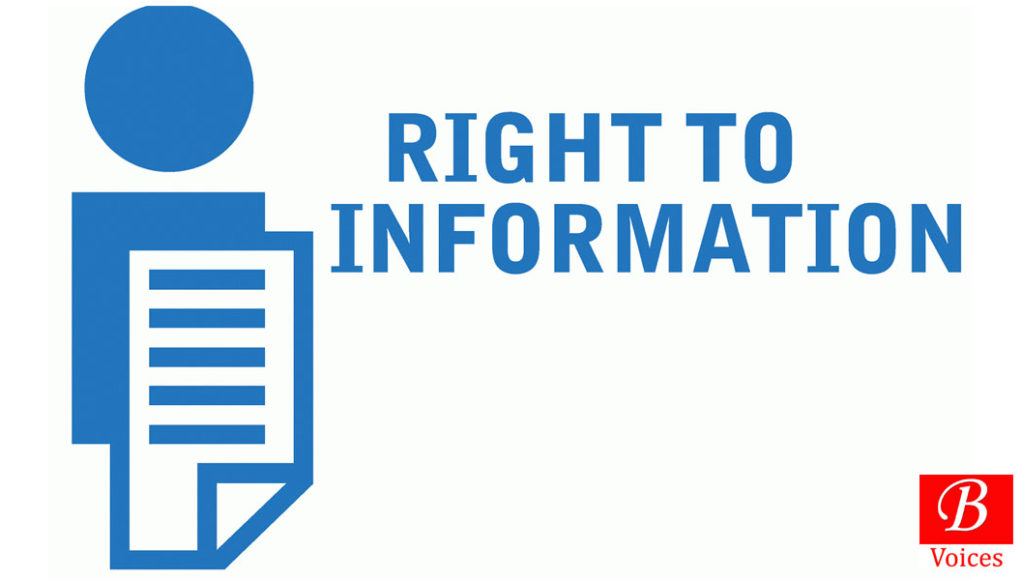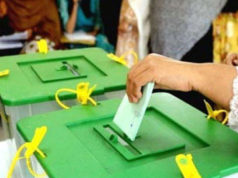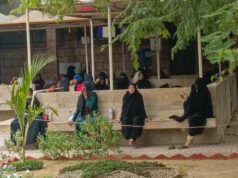Nadeem Khan
Outside the Quetta press club on Shara-e-Adalat road here in the cafe area sitting a senior journalist Behram Baloch in his middle-ages who remain in the media field for 16 years.
Balochistan assembly had passed the Balochistan Right to Information Act 2021 but it is yet to get to the practical arena owing to the bureaucratic hurdles in its way. As neither the government nor the bureaucracy is ready to present information to the public and media alike in Khyber Pakhtunkhwa and Punjab.
The same act is passed on the federal level and applied in the capital city of Islamabad and Sindh as well. The public interest issues are asked, replied and information is monitored that way.
But Journalist Behram Baloch from Balochistan is of the view that if there is a will there is a way, though, the act is passed but hurdles are created in its way to have a proper mechanism in the form of “commission and rules of business”—this should define the areas of information in every ministry, institution, and organization in the province.
“We were having 2005 Freedom of Information Act that was not that much deeper and up to the mark to get the process of information easy, but merely a way of slow and incapable mechanism, so the provinces went to pass the Right to Information act after it surfaced from Khyber Pakhtunkhwa assembly”, says Behram.
“Once I was in a debate with a parliamentarian from Balochistan on the process of Right to Information law, he replied that it would be merely a blackmailing tool for journalists”. Says Behram
Article 19A of the 1973’s constitution of Pakistan protects the basic human right of access to information it tells, “Every citizen shall have the right to have access to information in all matters of public importance subject to regulation and reasonable restrictions imposed by law.’’ After the 18th amendment in 73’s constitution federating units became empowered. The right to have access to information falls under the Sustainable Development Goals number 16 of the United Nations that makes the member states bound to get to the status till 2030.
Balochistan had poor law Freedom of Information Act 2005 which was poor and no time frame and had been given to provide the information and there was no commission where journalists could appeal if they denied providing information. Balochistan govt decided to make new law like other provinces,
As per the available information, the Balochistan Right to Information Act 2021 had been passed by the Balochistan assembly on 15th of the February signed by Governor Balochistan. “But still this law is not implemented, rules of business, commission information is yet to be formed and information officers yet to be appointed in the various department who would provide information to the applicants”, says Behram.
Other provinces of the country have already passed laws. Khyber Pakhtunkhwa Right To Information Act 2013, the Punjab Transparency Act 2013, the Sindh Transparency and Right To Information Act 2017, and Right Of Access information 2017 (federal) were made in order to implementation on article 19A. In Pakistan’s province, Balochistan due to the absence of Right to Information Law journalists faces difficulties getting information from different departments.
Pakistan’s southwestern province Balochistan is one of the most dangerous places for journalists 43 journalists have been killed so far. Due to conflict in Balochistan, Journalists are reporting under constant life threat job insecurity deprived of access to information.
The media houses across the country are on agitation and press clubs and journalists unions echo the voice since the 2018 general elections that led Imran Khan to become the country’s premier Pakistan Tehreek-e-Insaaf—the movement of justice party. After the party came into power media houses have come to cry over the censorship imposition due to pressure through advertisements and filing cases against the media houses owners and senior journalists. These journalist’s unions and media houses owners are opposing the Print Media Development Authority being a tool of censorship.
RSF’s Asia-Pacific desk. “If adopted, it would reestablish martial law for the media, recalling the worst moments of military dictatorship that Pakistan has known. This bill’s provisions are utterly incompatible with a democratic system.”
It further states, “Introducing a “single-window” system for handling all disputes about journalistic content, the Pakistan Media Development Authority (PMDA) would enable the government to curb the freedom to provide news and information online, it has already succeeded in doing, to a considerable extent, with the traditional media.”
RSF already criticized similar proposed decrees twice in 2020, first in February and then in December. In Pakistan, the digital domain is seen as the only place left where information circulates outside government control.
Though, the Balochistan Right to Information Act 2021, section 11 of this act states that within 15 working days information is to be provided to the one who has applied asking for the required information.
Subsection 2 states period stipulated may be extended by a maximum furthermore 15 working days where is necessary because the request requires a search through a large number of records or records located in different offices.
Behram Lehri is an activist working with a developmental organization NGO, he was part of the while drafting of this law says the RTI is not satisfied with the implementation of the act.
‘’As a test case we filled RTI application under The Information Act 2005, to local government, water and sanitation authority (WASA), education and health department but none of them responded to the application. As per law, we appealed to the provincial ombudsman, we were told that our signature on the national identity card CNIC and on the application do not match, which means they were not in the mode to provide us information.
As RTI law 2021section subsection of 7 states, the applicant shall provide an appropriate reason for his request. Section 18 subsection 1 states on the commencement of this act, govt shall within periods of 120 days establish an information commission. Section 6 subsection 1 states that on commencement of this act, a public body within a period of 120 days, designate and notify an officer to act as a public information officer in all administrative department/ sub-ordinance officers/ Districts officers under it, for the purpose of this act with whom a request for information under this act.
‘’Though 120 days have passed but still, the law has not been implemented, still, the commission is to get formed. I think the government doesn’t want to make functional this law because it can reveal their bad governance. As the current political scenario seems this act would not be functionalized in this government. Draft of the act has many drawbacks”, says Behram Lehri.
While as per law, national defense and security, a legitimate privacy interest, inquiry detection of crime, summaries, and notes on the file are included in the exception list.
A senior lawmaker from the opposition side Sana Baloch says, “This is not right to information but right to curb information. You cannot ask about summaries, government itself wants to protect itself through this law because this law will protect them like you cannot get information.’’
He adds in Balochistan there are many issues that are ‘strategic’ in Balochistan causes ambiguity because every issue is having its strategic aspects. There is not any specific definition of national security and defense and nothing is clear and define in the draft of the act, there are restrictions in and long exceptional list.
While director-general public relations Shezada Farhat says, ‘’We are bound to make RTI law implemented because it’s the right which has been given under the 73’s constitution. RTI law would help journalists to investigate public interest issues. Law department is working on rules of business it took some time but soon this law will be implemented”.
We’re in wait to get the implementation process from the secretary of the law of the province, “but we do not know how much time it will take. After that the department will form the information commission later appointments of the information officers”.
There was the pressure of civil society for the eye-wash government just passed to overcome the looming pressure. And the RTI exceptional list of the different subjects mentioned in the law is totally a cause of undefined ambiguity. And govt doesn’t want the RTI act to get into practice they have fear after this law information will be made public, told Sana. Baloch MPA
In recent days political scenario of the province has changed, in the disturbing political scenario of the province, implementation of RTI law is not in practice.
President of Balochistan Union of Journalist president Salman Ashraf demands that govt should remove hurdles to the implementation of the RTI Act in order to protect freedom of expression and pave the way for access to information. He calls upon every school of thought to stand with them to make RTI Law implemented.
“Balochistan Union of Journalists (BUJ) along with other journalists bodies have been struggling on a larger scale, for freedom to information under 19 points agenda, in a time when here in the country undeclared martial law is imposed and govt is imposing censorship on media. They want to silent us’’.
Many of the journalists never filled an RTI application, many of them are even don’t have enough knowledge and awareness on right to information act and its application process. Journalists of Balochistan need proper RTI awareness sessions and training.
President of (BUJ) Salman ashraf agreed, “in Balochistan journalists need training because many of them don’t have knowledge of Right to information act and its application procedure. I call upon the government, non-governmental organizations NGOs, INGOs to collaborate with the journalist and train the journalists of Balochistan that will help them to know RTI law and to practice.’’
Fiza Kanwal is an RTI activist says, “Current political setup is the main cause of in delay of RTI law, seems it can take years in full pledge implementation. I demand to the provincial govt shall implement this law as soon as possible. Governmental and other relevant data should be online where any citizen can get information easily, especially journalists. It would make govt accountable”.
Alike journalist Behram Baloch, in Balochistan many journalists are waiting for when RTI Act will be implemented where they can get information and make govt and other institutions accountable. Despite in Balochistan journalists life is under constant threat.
Share your comments!








